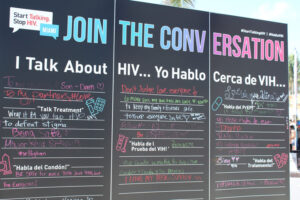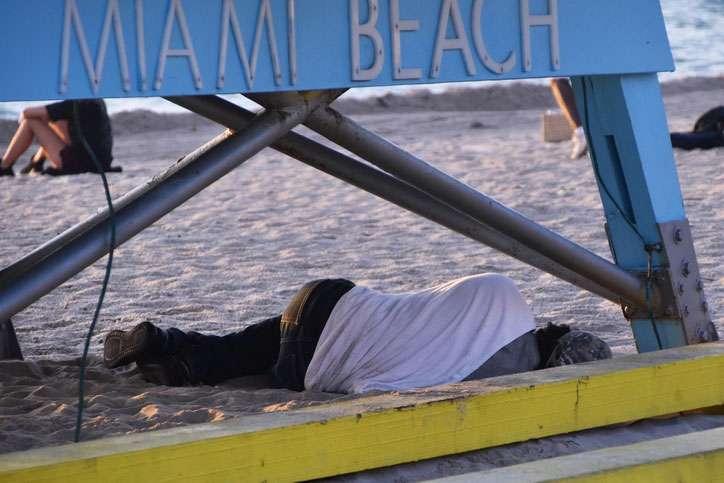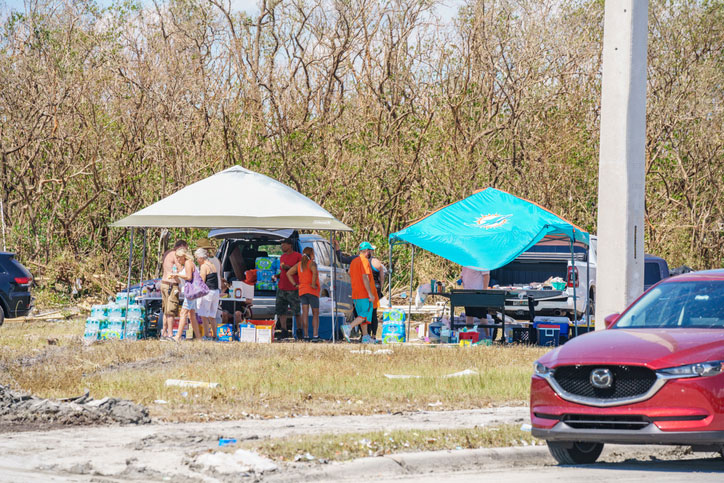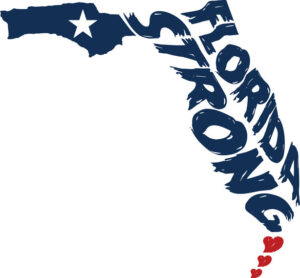Written by Scott Wilson

If America is the melting pot for the world, Florida is the melting pot for America. With a steady stream of new arrivals not just from overseas but from other states, our population has both boomed and become more diverse.
So diverse, in fact, that a Census survey showed that if you took any two people in Florida at random, there’s a 64.1% chance they’d be from different racial and ethnic backgrounds.
Florida’s social workers see every day how diverse and colorful humanity is, and the many different ways people need their help.
All those unique and incredible individuals and communities come with their own distinctive challenges and needs, however. And the human services sector in Florida has evolved to assist them with those needs. For example, early waves of Cuban immigrants tended to have higher socioeconomic status, connections to the existing community, and lower need for social services. But the state had to retool its services to deal with the Marielitos who arrived later and had a tougher time with both mental health and psychosocial adjustment to their new home.
As a practical matter for anyone heading for a career in social work in Florida today, what this all means is that there are a positively enormous number of different niches and paths you may take. The role you choose to fill will eventually define almost everything about your social work career, from salary to your day-to-day interactions with clients to what type of business you work for.
It’s a big choice and it’s one you often have to make fairly early in your education. So buckle up and prepare to learn everything you need to know about social work roles in Florida.
Your Social Work Specialty Can Evolve as Needs for Floridians
If you didn’t know it already, you’ll start to understand it pretty quickly as you start your education in social work: human services isn’t just a broad industry, it’s one that is loaded with niche specializations based on different skillsets, populations, and the various needs people have.
That makes it impossible to be an expert across the span of different social work roles. It’s even tough to simply become competent and effective in more than one. That means you’ll be making a choice about what you’re going to specialize in pretty early on.
This choice will largely determine what your career in social services looks like – everything from the level of degree you earn to the type of clients you end up working with every day.
Of course, just as society evolves, so do social work specializations. Over the course of a long career, you’ll see the ways in which people’s needs change in Florida, and the way social work adapts to meet those changing needs.
Many social workers develop a specialization and then work their way up through jobs in that specialization to greater levels of responsibility and different kinds of work.
A coordinator with a military Family Readiness Group at Elgin may develop their counseling skills with an MSW and bump up to a job in PTSD and reintegration counseling with the VA at the Orlando Vet Center. After even more time on the job, they could shift to a more macro role managing and allocating resources for the entire region.
You may find that your own interest and skillsets evolve over time as you gain more experience in the field, which can lead you into a different specialization entirely.
Or you will see that your own specialization becomes a different kind of practice in time, with different sorts of skills and knowledge needed… social workers specializing in handling the worst of the AIDS crisis in Miami in the 1980s have seen HIV tamed and their counseling and advocacy work turning instead to LGBTQ+ equity and inclusion.
Florida Social Workers Have Made Great Progress in HIV/AIDS Treatment
 The legacy of the AIDS epidemic remains chiseled into the licensing requirements for clinical social workers in Florida. To earn that license, you’ll need 3 hours of specialized HIV/AIDS training.
The legacy of the AIDS epidemic remains chiseled into the licensing requirements for clinical social workers in Florida. To earn that license, you’ll need 3 hours of specialized HIV/AIDS training.
But there are other events in those early days that burn in the memories of the Florida social workers who experienced them. Perhaps the worst of those was the story of the Ray brothers.
All three brothers had inherited a genetic disorder, hemophilia, which required regular blood transfusions. It was through contaminated transfusions they were infected. All were under the age of 11 at the time. This was 1987. By then, HIV/AIDS had already been branded as a “gay disease”, but the Ray brothers certainly should have been beyond such insidious slurs.
In the midst of the irrational fear and ignorance that surrounded the disease at that time, local schools refused to allow them to attend. The Ray family sued, and won.
Within a week, in a case of arson that was never solved, their home was burned, and they were forced to move. All three brothers later passed away. This sickening event stood out even during this shameful episode of American history.
If it’s shocking that Florida would run three children out of town and burn their family home, it’s in large part because social workers have since helped to educate the community and transform the conversation. They’ve also been key in pushing for treatment and the development of medications to keep HIV in check, which has made LGBTQ+ social work specializations a much different position in Florida today than it was in 1987.
How To Shape Your Social Work Education and Training to Fit the Role You’ve Always Wanted
Florida is a state that is big on freedom. You’ll be completely free to apply for any kind of social work job that sparks your interest here, no matter what your background or education.
But don’t expect to get many call-backs unless you have the right skills for that position.
There are a few factors within your control that will influence what sort of social work jobs you can fill in Florida. Many of them are connected – it comes down to education and experience.
Consider Your Degree Level…
Exactly what level of degree you’ll need to earn – whether an entry-level associate or certificate, or a more advanced BSW or MSW – will depend both on the area you plan to specialize in, and at what level you plan to practice.
A human services assistant job processing applications for subsidized housing doesn’t take the same level of training as you would need to provide clinical assessment and psychotherapy to homeless military vets with substance use disorders.

Choose Your Practicum Wisely…
Your college practicum and internship placements will form your first genuine, hands-on client-facing experiences in social work. This will play the biggest part in shaping your specialty. Sure, there’s the obvious fact that it will put you in the field working in real-world settings with actual clients within your specialized area of interest.
But even beyond that, this is also where you begin to make contacts in the field for future networking. Gaining some experience and building a reputation alongside experienced social workers who have been working in the specialty you’re interested in for years can be the starting point for references and job prospects later on.
Choose a Formal Focus or Select Specialized Courses…
Social work degrees at all levels are commonly offered with a range of specialized concentration areas that tailor classes to different roles – from child welfare to elder care. It’s so common that the second year of a typical two-year Master of Social Work degree is generally referred to as the specialty year.
Even without a pre-built focus, you can often earn a certificate in a specialty area alongside your BSW or MSW. At the BSW level, you’ll also find that many schools let you add a specialty focus as a minor.
And even without a formal focus or certificate option available, you can effectively build a concentration in a specialty through your selection of elective courses. Say you’re in a clinical track MSW, for example, you can stack your electives with courses in substance use disorders to create a focus in addiction counseling.
Consider the Need for Licensing…
Education is also critical because it shapes your ability to qualify for a license or certification to perform certain types of social work in the state of Florida.
There are two credentials available from the Florida Board of Clinical Social Work, Marriage & Family Therapy, and Mental Health Counseling. Each has a specific set of qualifications that includes a Master of Social Work with specific coursework.
One comes with specific legal authority to perform clinical social work, and is in fact legally required for any social worker in Florida performing clinical assessment and counseling: Licensed Clinical Social Worker (LCSW). Clinical social work involves positions that deliver direct, micro-level counseling and therapy to individual clients and small groups. These types of jobs may not be performed by anyone who doesn’t hold an LCSW.
The other is a voluntary credential in mezzo- and macro-level social work outside of clinical practice that doesn’t grant additional legal authority, but denotes a high level of expertise: Certified Master Social Worker (CMSW). Mezzo- and macro-level social work can apply to any specialty and involves bigger-picture administrative and policy work that calls for leadership and management skills. A CMSW is an official Florida state certification for people who have taken the extra steps to learn and practice exactly those skills.
There are roles to fill in many specializations for people with either type of license, or even with no license at all. But there are also specializations that by their nature, require a license. Mental health social work, for example, almost always involves direct clinical counseling, so those roles are only open to you if you hold an LCSW.
You’ll even find that universities in Florida that offer CSWE-accredited programs often refer to their clinically-focused MSW more broadly as a specialty program, while non-clinical tracks designed for mezzo- and macro-level practice are often classified as generalist MSWs.
The Many Roles Open to Social Workers in Florida Today
When you are picking a role where you will show up to work every day for years to take on the same kind of issues and work with the same kinds of people, you will want to do your homework first.
All these various fields in social work come with different opportunities. When you are considering your choices, you’ll want to develop an understanding of what you are getting into by considering…
- What sort of population and other professionals you will work with from day to day
- Where the jobs are mostly located
- What kind of environment you’ll be working in, whether an office, on the streets, in a hospital, or elsewhere
- What types of agencies and organizations hire social workers in the role
- What official qualifications are mandatory for the job
- What the most common certifications and background requirements may include
You will find all that information here and more, along with a look at what specialties offer opportunities at the policy-level (macro), program- and community-level (mezzo), and individual- and family-level (micro):
Ensuring no one is left behind is a challenge in its own right in the human services bureaucracy. The state of Florida largely outsources human services work, as with the Department of Children and Families Community-Based Care system. It’s up to the professionals who track each case with designated Case Management Organizations to ensure the most vulnerable members of society don’t fall through the cracks. Elite level organizational skills and in-depth knowledge of human services systems are a must-have for these roles.
Nowhere needs gerontological social workers more than Florida, the retirement capital of the United States. An ability to make connections with older adults is critical, along with the empathy and communication ability to help their families deal with the range of health, mental fitness, and financial challenges that come with aging.
Protecting children in Florida has been farmed out to Lead Agencies like Family Support Services in Duval and Nassau counties, which opens up a wealth of positions for social workers who can coordinate service partnerships while keeping the welfare of kids at the top of their priority list.
Related to child and family practice but often with a somewhat older cohort in focus, juvenile and youth social workers take on hard problems like teen pregnancy, substance abuse, and gang violence issues across Florida. Whether it’s shepherding kids through Walker Plan youth sentencing agreements or building up after-school arts programs to reach at-risk kids and keep them off the streets, social workers in these roles have the tough job of both making connections and being a role model.
Florida has the third highest prisoner population in the country, and a 3-year recidivism rate of around 25 percent. That makes social workers who can assist with sentencing reports, rehabilitation, and reintegration work enormously important in the Sunshine state. A healthy appreciation for environmental factors leading to criminal acts as well as an understanding of the legal and prison systems are a must.

Florida has some of the most finely honed crisis response social work systems in the country, courtesy of the semi-regular natural disasters that roll through almost annually. Social workers may either assist with the major coordination and disaster relief that comes with hurricanes and floods, or work on a more personal, clinical level in helping individuals deal with crisis situations.
Healthcare social work often goes hand-in-hand with gerontological, palliative, and crisis care. It’s a field that comes with many niche roles, like Pediatric Social Work at Nicklaus Children’s in Miami. Social workers in healthcare develop a deep understanding of both medical practice and the American insurance and medical billing network. They help fill in the gaps for patients who need an extra effort for after-care and follow-up.
Florida has the third largest homeless population in the United States, driven by housing costs, mental health, and substance abuse issues as well as unique problems faced by the state’s many immigrants and refugees. Social workers in this role attack the problem from both directions, through policy advocacy like that performed by the Florida Coalition to End Homelessness, and direct support in getting services to people on the streets… and finding shelter to get them off the streets, one by one.
Hospice and Palliative Care
It’s inevitable in a state with such a large elderly population that hospice and palliative care social work is also a major role. Assisting patients and their families as they go through painful and emotional end-of-life circumstances takes tact, sensitivity, and knowledge of healthcare processes, estate law, and other factors that are unique to Florida.
Immigration
Florida has long been a mecca for people escaping poverty and oppression overseas, from the Cuban Revolution in 2959 to the Mariel boat lift of 1980 to the latest waves from Haiti and Venezuela. Immigration social workers speak the languages, understand the cultures, and have the resources to help those new arrivals adjust to a new life in the United States. They frequently fight for recognized status for their clients and ensure refugees receive the assistance and respect they deserve.
Mental Health
Direct clinical counseling is a major role for LCSWs, one which they can combine with other social work skills to provide more comprehensive treatment than other kinds of counselors. These experts bring extensive psychotherapeutic training with them, but also use their superior knowledge of social systems, culture, and environmental factors in mental well-being to develop more lasting treatments for clients.
Drug and alcohol addiction impact an estimated 1.5 million Floridians each year. Social workers trained in this field recognize that addiction is a complex web of related social, mental, and environmental issues. Unlike other counselors in this field, they have the knowledge and understanding of how those factors come together to provide effective supports at every level of prevention and recovery.
School and Education
Florida’s education system has been ground zero for both cultural and physical threats for the past few years. Social workers in this environment shield students from the worst impacts of school shootings and moral political crusades. They also use their social and psychological training to intervene in more pedestrian matters of bullying, abuse, and basic angst to protect and support students throughout the state.
Anchored by bases in Pensacola and Jacksonville, Florida has the fifth highest number of DoD personnel stationed here in the U.S. Just as significant, the state ranks third for number of military retirees, with some 1.4 million veterans and their families living here. Dealing with the health, mental well-being, and unique needs of this population requires social workers who understand the military ethos and the VA support system.
Private Practice
Social workers with a dream and a strong education have the option in Florida of striking out on their own crusade to deliver treatment and social justice in their own unique ways. Delivering services on a personal level, the only limit to the assistance this role can provide is your imagination.
There’s no question that Florida has been ground zero for the battle against injustice and intolerance in recent years. From the murder of Trayvon Martin to the outlawing of teaching the very concept of social justice itself, social workers have a lot of heavy lifting to do to build Florida back to a place where equality and justice have value. With the energy to marshal protest marches, organize vigils, and campaign in the halls of the Capitol in Tallahassee, social workers in this role aim to make a brighter future for the Sunshine State.
With such a large population of immigrants, Florida naturally has plenty of ties to other countries. On the doorstep of the Caribbean, it’s impossible for social workers here to miss the conditions of poverty and injustice just across the water. So there are plenty of organizations here that work to deal with refugees before they become refugees, by sending aid to struggling countries all over the world. This is big-picture social work, which takes the promise of global social justice seriously and puts the tools to work making lives better everywhere.

The domain of Florida Licensed Clinical Social Workers, clinical practice can be found in many, if not all, other specializations. Delivering direct therapy and counseling services, this role requires an intensive education in psychology and techniques like cognitive behavioral therapy (CBT) and dialectical behavior therapy (DBT). But it’s also the way a social worker can have the greatest impact on any individual’s troubles in life.
It’s no secret that Florida’s social welfare policy is in flux today. But something that fewer people are aware of is the influence that fully prepared social workers can have over those changes. With a firm command of research, statistics, and the history of socioeconomic factors in play in the Sunshine State, social workers help design and influence the systems that deliver assistance to Floridians in need. Organizations like the Florida Coalition for Children’s Policy Development Center or Florida TaxWatch keep an eye out and keep the pressure on legislators to bring effective social welfare to the forefront.
Administrative work is the iconic mezzo social work role. Although it doesn’t always get the glory, it’s clear that the work of social justice and public assistance would grind to a halt without administrators and leaders. This role is one that people rise to over time, and can go as far as you are willing to take it—from keeping a small team helping the homeless in Tampa on track, to leading massive marches in support of LGBTQ+ rights through Miami.
Your Role as a Social Worker in Florida Will Ultimately Be a Blend of Specializations
 Not everything is cut and dried when it comes to picking a social work specialization in Florida. You probably noticed that many of the roles listed above can apply within or in combination with other roles.
Not everything is cut and dried when it comes to picking a social work specialization in Florida. You probably noticed that many of the roles listed above can apply within or in combination with other roles.
It’s extraordinarily common to find case managers within healthcare, forensic, child welfare, and immigration specializations, for instance… You can engage in private practice in any number of different specialty areas… And plenty of mental health and substance abuse social workers wind up working primarily within military, homeless, or juvenile and youth practice areas.
It’s often possible to come at these combinations of specialization areas from either end. For example, a Master of Social Work in Children’s Services can put you on the path to a career in pediatric oncology social work at the Gulf Coast Medical Center in Fort Myers, but so can an MSW concentration in Healthcare.
Being a social worker in any field is a process of ongoing education and skill development.
You can also develop skillsets in multiple fields through both the continuing education hours you’ll need to maintain licensure, or through your own independent efforts to pursue post-graduate certificate programs that open up new fields of knowledge.
Just as certain social work roles may combine in terms of population needs, they can also drift over time. The nature of substance abuse treatment in Florida as elsewhere, for example, has dramatically shifted with the rise of synthetic opioids. Overdose deaths and the availability of fast-acting antagonists like Narcan have completely changed the landscape of social work substance abuse treatment.
You may find that your interests shift as the nature of the job and your accumulation of experience change. It’s unusual to find a social worker who doesn’t shift their roles somewhere through the course of a long career. Whether that’s climbing a ladder into management and leadership jobs that are less hands-on, or making the jump to another field in human services entirely, it’s about where you feel you can do the most good at the time.
Just like getting into a particular field of practice in the first place, though, shifting roles and responsibilities in social work over the long-term takes additional effort and education.
Professional Certification and Continuing Education Offer a Path to Deepen Your Specialized Skills or Shift Them to New Roles
Some of that extra education is built-in to many Florida social work roles.
Any specialization that requires an LCSW license or that calls for an CMSW credential will also find you engaging in mandatory continuing education each year to renew that credential. While some of the topics are required, most of the 15 hours per year are open to your own interests or needs.
There are also national professional certifications available to further develop your expertise and recognition in many specialized areas of social work practice. Certification offered through the National Association of Social Workers and other professional organizations like the Association of Oncology Social Work offer more in-depth training and evaluation of your specialty skills in various practice areas.
All these offer opportunities to either shift your role over time, or to hone your expertise even more deeply. It’s an ongoing way that you can make sure your social work career is serving both the needs of your community, and your own unique interests and goals.
